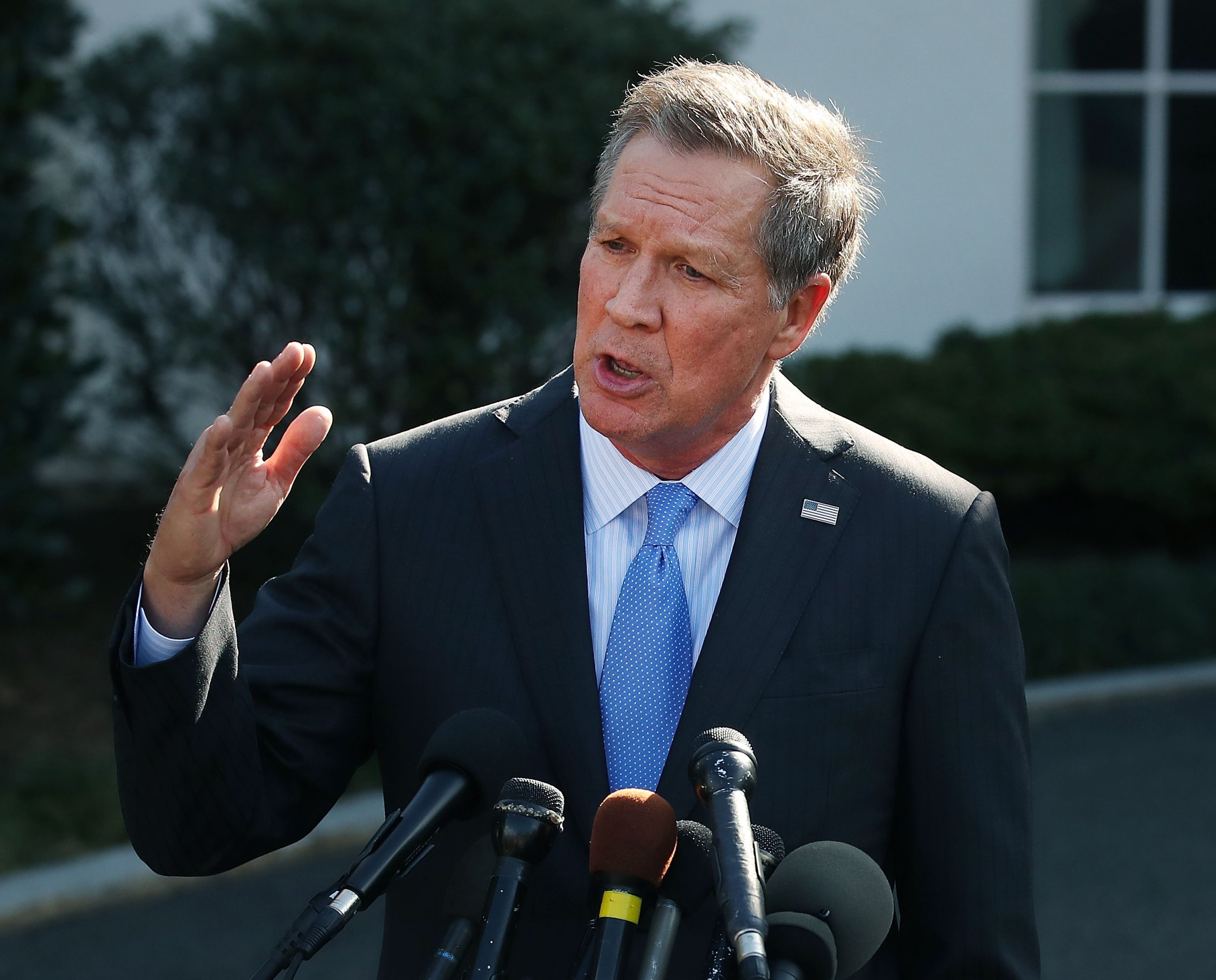
Ohio Gov. John Kasich discounted recent studies and state lawmakers from both parties on Thursday when he said his state’s medical marijuana program would not help alleviate its opioid crisis.
While at a news conference announcing new limits on opioid prescriptions, a reporter asked Kasich what role medical marijuana might play in reducing the increasing number of opiate overdose deaths in Ohio, according to Cleveland.com.
“I know it’s not recreational marijuana, not recreational use, but I don’t see a role for it in this at all,” Kasich said, according to the Ohio news website. He added that telling children to stay away from drugs while endorsing marijuana could send mixed messages.
Ohio’s medical marijuana law, which Kasich signed last summer, allows doctors to recommend that patients with certain medical conditions buy and use marijuana. Individuals are not allowed to smoke weed or grow it at home.
A number of studies in recent years have found that opioid deaths decreased in states where medical marijuana is legal. Marijuana is far less addictive and less deadly than opioids, and research has shown it can ease pain. Both Republican and Democratic lawmakers in Ohio even cited the opioid crisis as a reason to pass the state’s medical marijuana law last year, Cleveland.com reported at the time.
More Must-Reads from TIME
- Donald Trump Is TIME's 2024 Person of the Year
- Why We Chose Trump as Person of the Year
- Is Intermittent Fasting Good or Bad for You?
- The 100 Must-Read Books of 2024
- The 20 Best Christmas TV Episodes
- Column: If Optimism Feels Ridiculous Now, Try Hope
- The Future of Climate Action Is Trade Policy
- Merle Bombardieri Is Helping People Make the Baby Decision
Write to Abigail Abrams at abigail.abrams@time.com